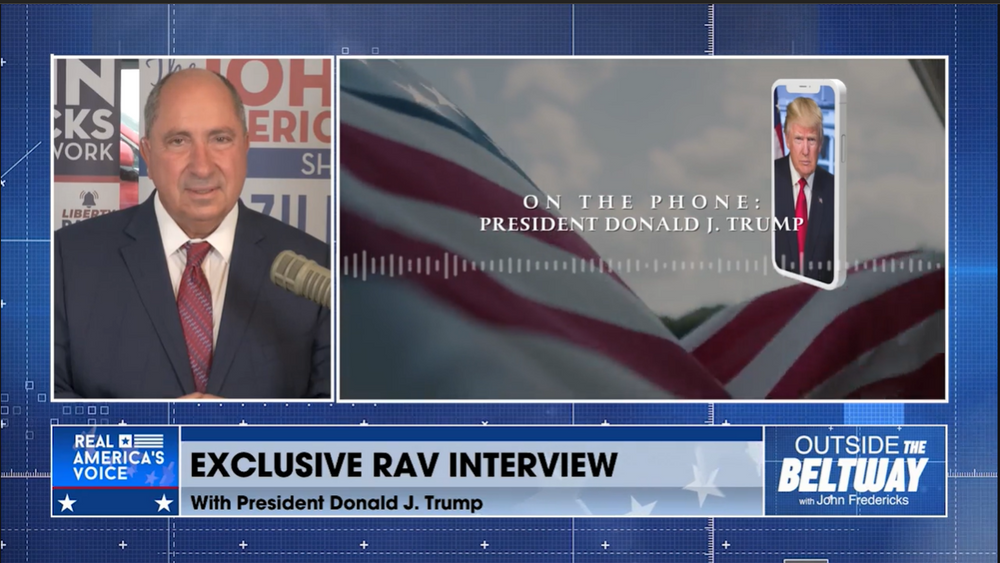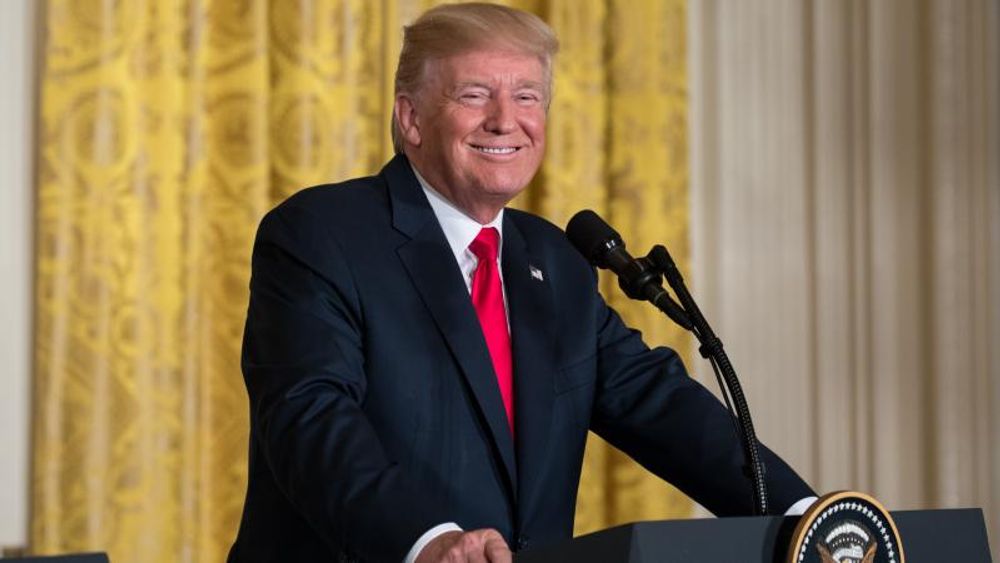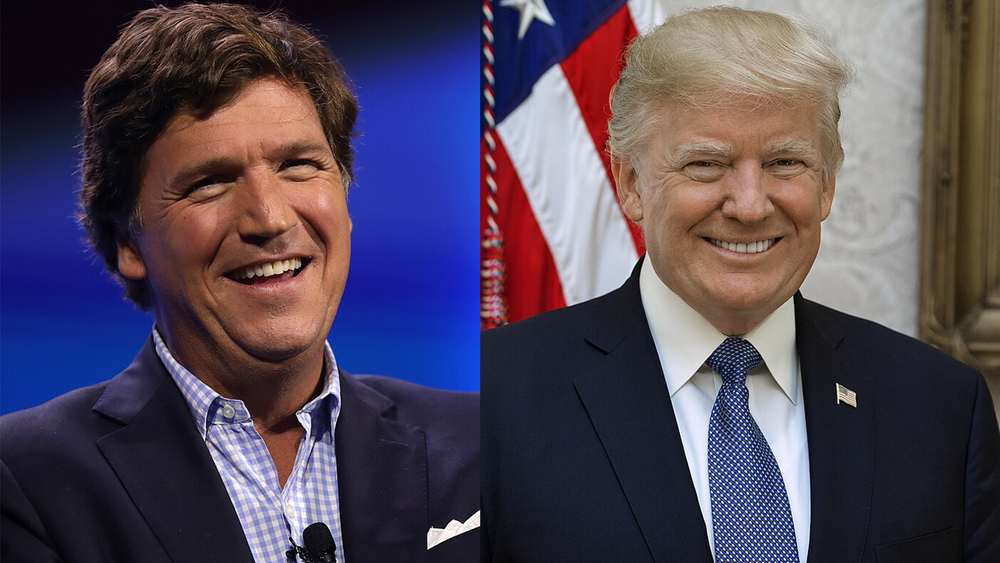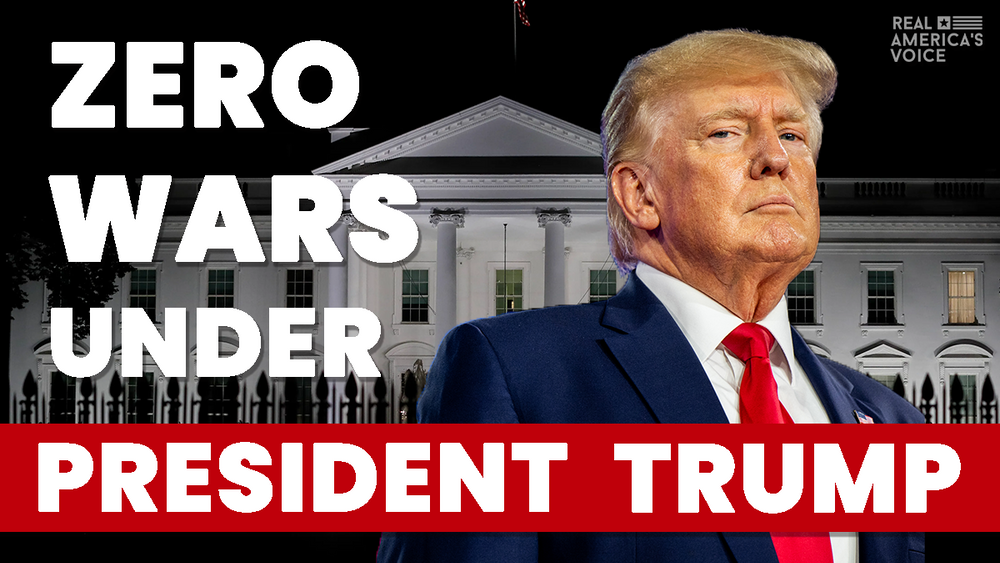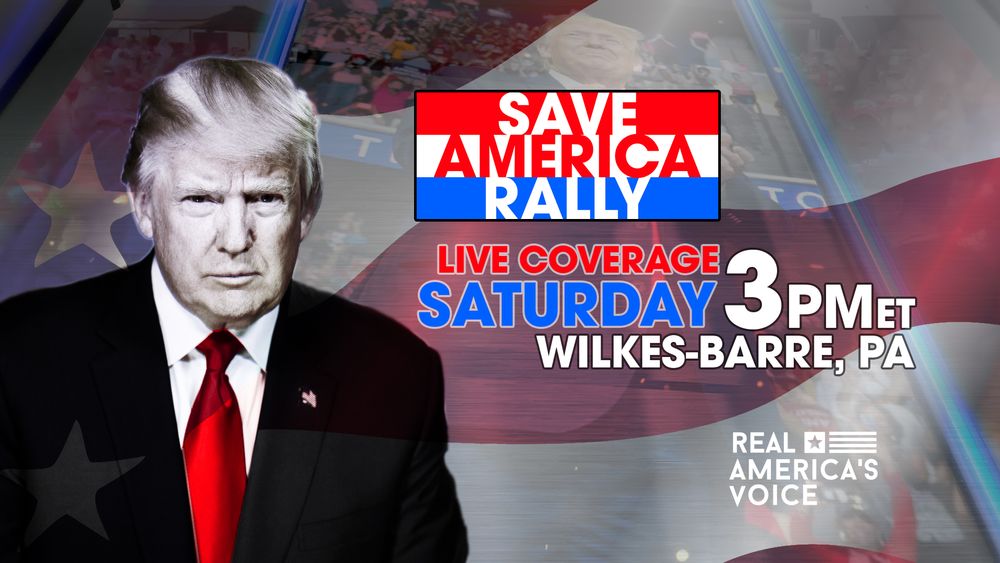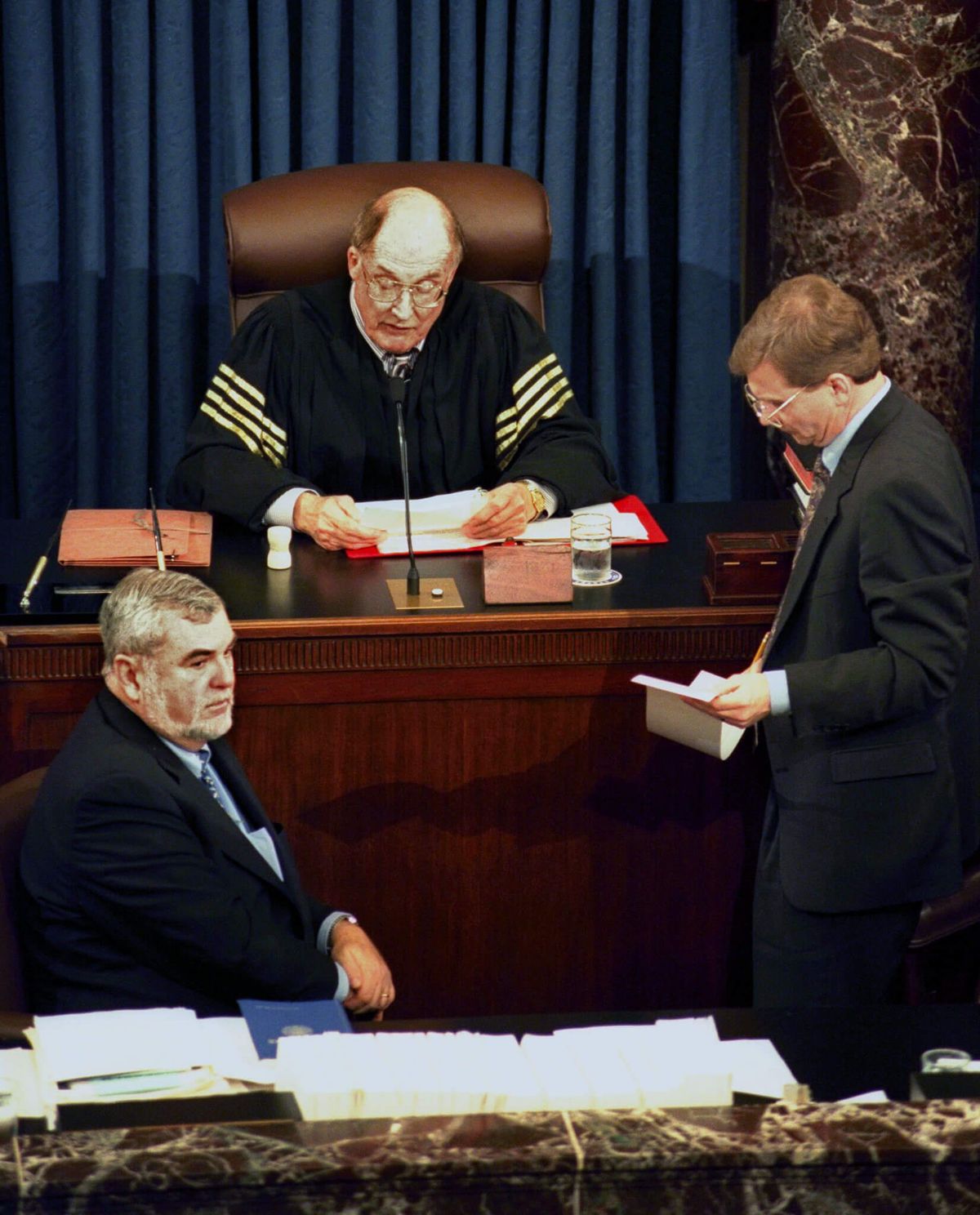
Solemn Senate Trial for Trump Includes Silent Senators
Impeached by the House of Representatives, President Donald Trump now faces a trial in the U.S. Senate.
A guilty verdict will end his presidency, although that is considered unlikely to occur with Republicans in control of the Senate. There is little in the U.S. Constitution about how to conduct an impeachment trial. Article 1, Section 3 says the Senate shall have the sole power to try all impeachments; the Chief Justice will preside over a presidential impeachment trial.
"Otherwise it would be the Vice President presiding over the Senate, and he would have a conflict of interest," says Susan Low Bloch, a Constitutional law professor at Georgetown University.
There is also little precedent. This will be just the third Senate impeachment trial for a U.S. president.
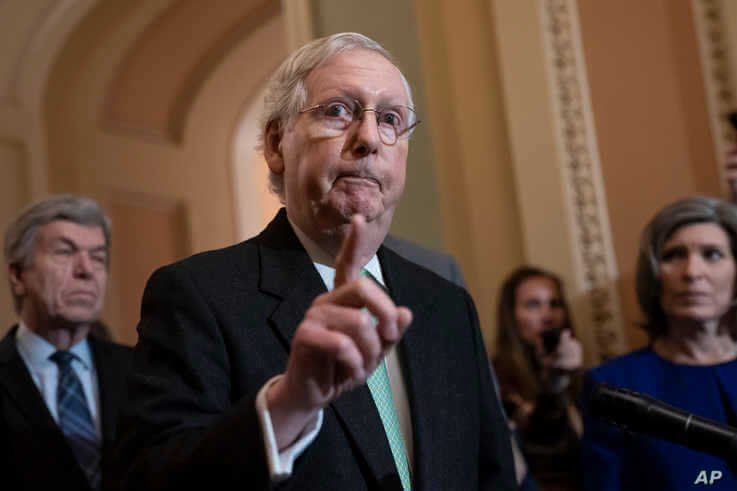
Trial rules
Although the Constitution says little about conducting an impeachment trial, the Senate does have some rules. They are based on previous impeachments of judges and President Andrew Johnson, but the rules have not been updated since 1986. The rules do include the duty to conduct a trial upon receiving articles of impeachment from the House, and not just dismissing them.
Several members of the House of Representatives will be selected by the House Speaker to serve as House Managers. Their role is to prosecute the House's case for impeachment.
The president will have attorneys representing and defending him at the trial. Both sides can question and cross-examine witnesses. Any senator called as a witness must stand and testify from his or her desk.
Otherwise, senators are required to remain silent during the trial. Any questions or motions from senators must be submitted in writing. The trial's Presiding Officer, the Chief Justice of the United States, will determine their merits.
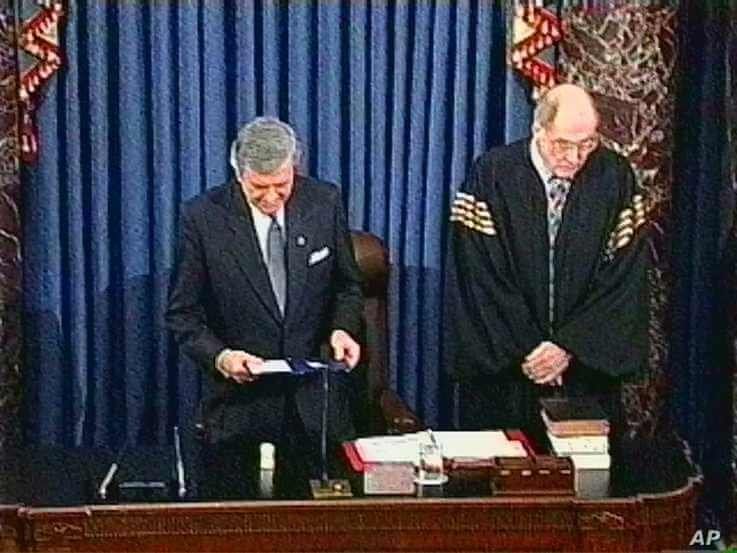
Chief Justice's role
Other than presiding over the trial, there are no other constitutionally prescribed duties for the Chief Justice during the impeachment of a president.
Senate rules allow the Chief Justice to rule on motions, objections, requests or procedures related to the trial. However, any senator can ask for a simple majority vote to overturn the Chief Justice's ruling.
For Andrew Johnson’s impeachment trial, Chief Justice Salmon P. Chase cast two votes to break ties in procedural matters.
William Rehnquist, who presided over Bill Clinton’s impeachment trial, took a more hands-off approach to guiding the proceedings, writing, “I did nothing in particular, and did it very well.”
One thing Rehnquist did do: uphold an objection that referred to senators as "jurors," declaring "the Senate is not simply a jury. It is a court in this case."
Super majority
While impeachment is inherently a political process, the Founding Fathers set the bar high and beyond simple partisanship to oust a president: a super majority of two-thirds of the senators present must vote to convict.
"For a president to be removed, means that both parties, a significant part of both parties, have to agree to that” said John Fortier of the Bipartisan Policy Center.
Currently, there are 53 Republicans in the 100-member Senate. Twenty would have to vote with Democrats and Independents in order to reach the two-thirds threshold. William Galston of The Brookings Institution, a research center, said "that requires a much broader coalition of support across party lines than we’ve seen so far."
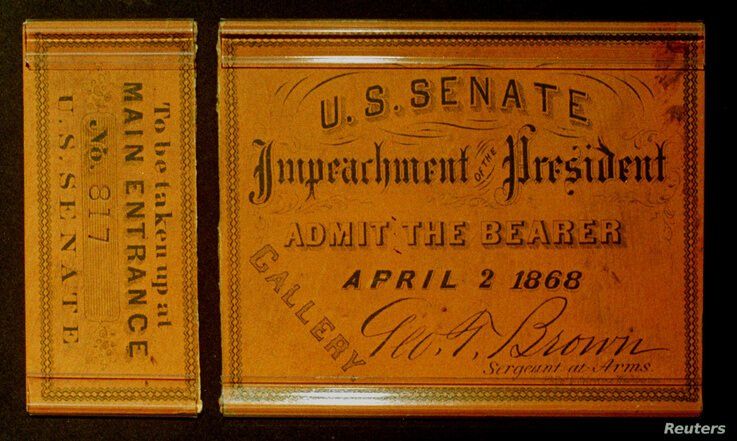
Two impeachment trials
A Senate trial for a U.S. president has happened just twice. Those proceedings could not have been more different.
President Andrew Johnson’s trial lasted 11 raucous weeks in the spring of 1868.
More than 40 witnesses testified. Senators delivered speeches in front of a gallery packed with overflow crowds.
Eleven articles of impeachment were sent forward. Just three went to a vote.
Although a majority of the then- 54-member Senate voted to impeach Johnson, they fell one vote short of the two-thirds needed to convict — and remove.
President Bill Clinton’s trial in 1999 took place in a more politically divided Senate. Republicans had a majority, but faced difficult re-election races ahead. It was evident there were not enough votes in the Senate to convict the Democratic president.
Senators decided on a streamlined process. Galston explained: "There was enough decency and goodwill on both sides so that the depth of the leadership, the Republican Party and the Democratic Party, got together and said we don't agree on the outcome but can we agree on a dignified appropriate process."
Senators heard from the House Managers prosecuting the case and Clinton’s defense lawyers and saw video excerpts of testimony from three witnesses. After a four week trial, the Senate could not muster a simple majority, much less the two-thirds needed to convict.
Post-impeachment
The Constitution prescribes just one punishment for conviction on impeachment charges: removal from office. If found guilty, the Senate may also vote to disqualify the impeached official from ever holding a government office in the future.
Both Presidents Johnson and Clinton continued their terms in office following acquittal by the Senate. Clinton went on to form a charitable foundation and help his wife Hillary Clinton run for president.
Five years after leaving the White House, Johnson returned to Washington, becoming the only former president to win election and serve in the Senate.
 House Democrats Set to Make Trump Third Impeached US PresidentNext PostEconomy Looms Large in 2020 Election Battle for Wisconsin
House Democrats Set to Make Trump Third Impeached US PresidentNext PostEconomy Looms Large in 2020 Election Battle for Wisconsin
